Why do progressives march in support of murderers?
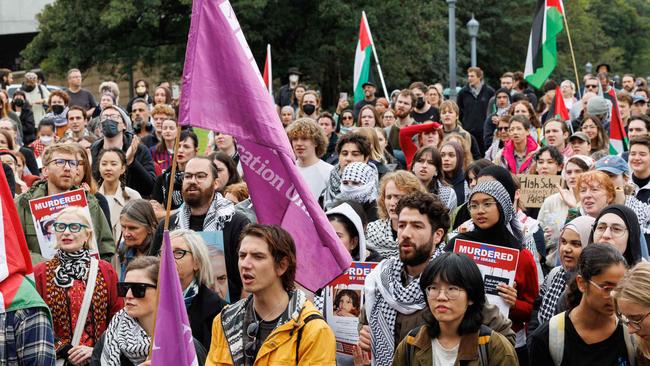
In a speech to the US congress in 2015, Israeli Prime Minister Benjamin Netanyahu explained Nasrallah’s position: “For those who believe that Iran threatens the Jewish state but not the Jewish people, listen to Hassan Nasrallah, the leader of Hezbollah, Iran’s chief terrorist proxy. He said: ‘If all the Jews gather in Israel, it will save us the trouble of chasing them down around the world.’ ”
By these words, Nasrallah was expressing a desire and an intention that all the world’s Jews be systematically hunted down, not just those living in Israel.
In the aftermath, there were attempts to deny or downplay the significance of Nasrallah’s words appearing in the London Review of Books, The Washington Post and other media outlets.
Netanyahu’s wording was a paraphrase of Nasrallah’s florid language but not a misrepresentation, as subsequently confirmed by an audio recording. The intentions of Nasrallah and Hezbollah towards the Jews are every bit as evil as that of the Nazis, the only distinction being that, thank goodness, they currently lack the power to enact their plans.
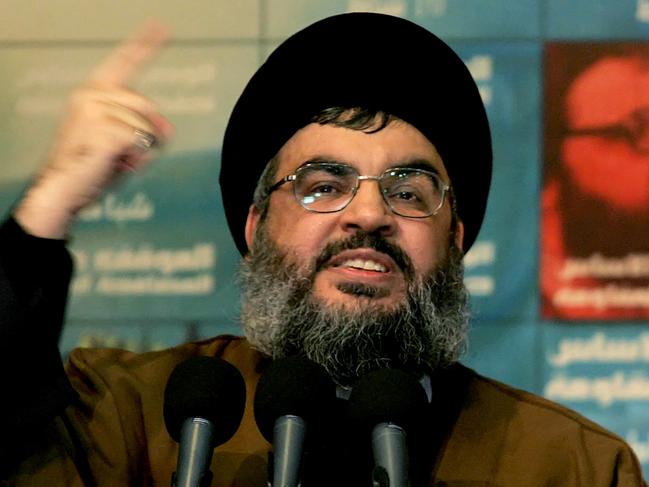
Unlike the Nazis, who went to great lengths to conceal their Final Solution for the Jews at the notorious Wannsee Conference in January 1942 – the official transcript was titled Secret Reich Matter – Hezbollah leaders see no need to hide their odious designs.
Likewise Hamas, the other Iranian proxy organisation. In article seven of its 1988 founding covenant, it looks forward to the day when “the stones and trees will say there is a Jew behind me, come and kill him”. Again, some leftists try to downplay this, referring to a 2017 update of the covenant produced for the benefit for Western media.
While retaining the intention to annihilate Israel, this document softens the language somewhat and omits the explicitly genocidal words. However, when questioned, Hamas leaders, especially when speaking in Arabic, are emphatic that the update does not nullify the original and it has never been rescinded.
In any case, the dreadful pogrom on October 7 last year eliminates any doubts. It is a prefiguration of what Hamas would like to do to the entire Jewish population of Israel and ultimately the world were they ever to get the opportunity. Then there is Hamas’s supporter and mentor, Iran, whose Supreme Leader Ali Khamenei predicted that by 2040 “there will be nothing left of the Zionist regime”. More ambitiously, Iranian ambassador to Australia Ahmad Sadeghi wants to ensure “wiping out the Zionist plague out of the holy lands of Palestine happens no later than 2027”. How remarkable, then, the reluctance, indeed refusal, of many Western progressives, including the Australian Greens, to unequivocally condemn these groups and their actions.
One of the most grotesque and surprising commemorations of the first anniversary of the pogrom comes from the British branch of Amnesty International, which posted a video titled It Didn’t Start One Year Ago to mark the occasion. The speaker, a woman, is shown walking at the head of a pro-Palestine march. She has nothing whatever to say about the enormity of what happened that day, a genocidal attack in which Hamas terrorists strove to murder, torture and humiliate as many Jews as they could get their hands on, reminiscent of the Nazi Einsatzgruppen in Russia during World War II.
Instead, it is entirely a recitation of the tropes about “context”, the Nakba and Palestinian victimhood. Even the current Israeli incursion into Lebanon is put down to malice and lack of accountability, nothing to do with the depopulation of northern Israel by 9000 Hezbollah rockets. How about that from a human rights group?
Then we get to academia, where American Judith Butler, arguably the most influential figure in queer theory and gender studies globally, has had some positive things to say about Hamas and Hezbollah.
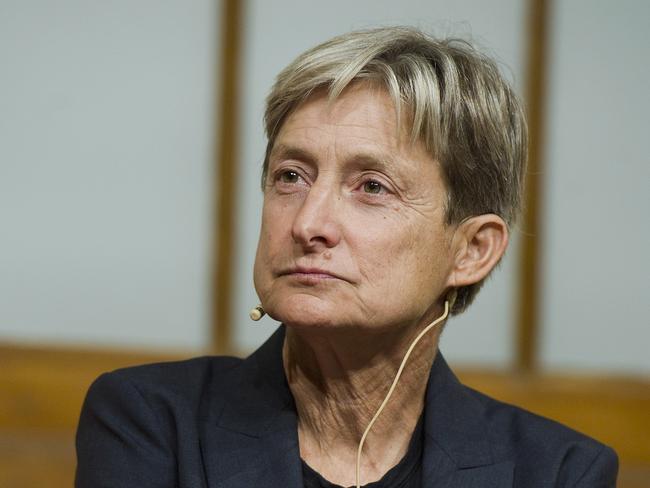
At an event at the University of California, Berkeley discussing an earlier round of conflict between Israel and Hezbollah, Butler said: “Yes, understanding Hamas, Hezbollah, as social movements that are progressive, that are on the left, that are part of a global left, is extremely important.”
Why would anyone, let alone a leading queer theorist, say something like that about an organisation that would gladly throw her off the top of a tall building?
Here is Butler’s defence after she was criticised over this: “I was asked by a member of an academic audience a few years ago whether I thought Hamas and Hezbollah belonged to ‘the global left’ and I replied with two points.
“My first point was merely descriptive: those political organisations define themselves as anti-imperialist, and anti-imperialism is one characteristic of the global left, so on that basis one could describe them as part of the global left.
“My second point was then critical: as with any group on the left, one has to decide whether one is for that group or against that group, and one needs to critically evaluate their stand. I do not accept or endorse all groups on the global left.”
This is pretty weak. Notice that in her original comment she included the word progressive in her characterisation of Hamas and Hezbollah. When someone says to an audience of humanities academics that it is “extremely important” to acknowledge an entity as progressive and part of the global left, that is an endorsement.
To be fair to Butler, though, shortly after the October 7 pogrom she did at least come out with this: “I do condemn without qualification the violence committed by Hamas. This was a terrifying and revolting massacre.”
In the current climate of campus progressivism, however, to condemn Hamas or any of its acts in any terms is beyond the pale. On March 3, Butler partly corrected herself, giving this characterisation of the Hamas pogrom: “It was an act of armed resistance. It is not a terrorist attack and it’s not an anti-Semitic attack; it was an attack against Israelis. You know I did not like that attack, I have gone public with this, and I have got in trouble for saying it was for anguishing (sic), it was terrible.”
So, deliberately targeting Israeli civilians, that is not terrorism? I wonder what Butler’s definition of terrorism is. The standard definition is the deliberate use of violence against civilians in pursuit of political or religious aims.
Butler is clearly a highly intelligent woman. She must realise how ridiculously incoherent her position is. But, as she acknowledged, she “got in trouble” for exhibiting a modicum of humanity towards the October 7 victims in her earlier statement. Much safer to call it an act of armed resistance, which is the received line of the Islamists and Trotskyist groups that have become a major influence on the university encampment activities since the pogrom.
By declaring an intention to repeat October 7 “again and again” and declaring it was “just a rehearsal”, Hamas leaders must have known this would amount to a declaration of war that was bound to lead to a huge military response from Israel with all the civilian suffering this would inevitably entail.
By diverting aid funds to construct an immense subterranean apparatus of war beneath densely populated residential areas, and especially key infrastructure such as hospitals and schools, Hamas sought to ensure that to get at Hamas’s military forces and infrastructure the Israel Defence Forces would have to go through these civilian facilities.
John Spencer, one of the leading experts on urban warfare, including the subterranean warfare employed by Hamas, contends talk of Hamas using human shields does not capture the enormity of what its strategy entails: “Hamas uses a human sacrifice strategy, not a human shield strategy. I can’t think of any other evil actor in military history who acted to get as many of their own population killed as possible to achieve their political goals.”
Hamas has not made the slightest attempt to protect the civilian population of Gaza, not made available any part of its 600km-long tunnel system to shelter Gazan civilians. Normal, civilised countries such as Ukraine and Israel try to get civilians out of the line of fire in a conflict. Hamas strives to keep them in the line of fire, the bodies of the dead and injured fodder for their global propaganda.
This is the kind of “armed resistance” that apologists for Hamas and Hezbollah are effectively defending. It says volumes that someone in a powerful position in academia such as Butler could be cowed into backtracking from her initial response and parroting this grotesque absurdity. Throughout the Western world, the climate on university campuses has become toxic for Jews, to the point where historian Niall Ferguson has compared the situation to that in German universities in the 1930s.
Consider the University of Sydney. In August, a meeting of 500 students organised by the students representative council voted overwhelmingly to support Hamas’s “armed resistance” against Israel. It then overwhelmingly voted down a motion condemning Hamas and the October pogrom put forward by two lonely dissenters in the audience.
The atmosphere at this gathering was appalling, with the two courageous students who spoke against Hamas subjected to jeering and ridicule. One of the students, Freya Leach, when interviewed by Rita Panahi on Sky News, said she was spat at and described one girl screaming “Allahu Akbar” in her face. This is typical of what is occurring on campuses and on streets all over the Western world.
The striking feature of all this progressive activism is just how reactionary it is.
Here we have people who identify as leftists making common cause with some of the most retrograde religious ideologues on the face of the earth. Strangest of all, we have groups such as Queers for Palestine championing the cause of people who think gays should be subjected to extreme punishments, including the death penalty.
Then there is the ubiquitous slogan: “From the river to the sea, Palestine will be free.” They must be kidding. A judenrein (Jew-free) Palestine, certainly, if Hamas, Hezbollah and their patron state Iran succeed in their murderous project. This, rather than the delusional talk by Western leftists about a secular democracy in Palestine, is what would eventuate should they prevail. Some freedom. Contrast that with Israel, where Arab gays can live and celebrate in safety and security, and where Arab Muslims have the right to vote, run for parliament, engage in ordinary political activity – rights denied to people everywhere else in the Arab world.
This is not to deny that Arabs in Israel have some legitimate grievances, especially in relation to settler activity on the West Bank, but there is some interesting recent polling data about how Israel’s non-Jewish population views its status. According to one credible poll taken in 2020, 23 per cent of non-Jewish residents of Israel identify as Israeli, 51 as Arab-Israeli and only 7 per cent as Palestinian.
A separate poll showed a large (85 per cent) and increasing majority of non-Jews living in Israel “feel comfortable in Israel being themselves”, and 65 per cent responded to the question “to what extent do you feel like a real Israeli?” with “a fair amount” or “very much”. Given which, it seems unlikely that most Arab citizens of Israel are yearning to be freed from the Israeli yoke by Hamas and/or Hezbollah.
So how did we get to this point? The obvious response would be to point to the dominance of identity politics in academia and beyond, especially in fields such as critical race theory and post-colonial theory, the latter invoked to designate Israel as a settler colonial society.
But this does not seem to account for the sheer extremity of many pro-Palestinian activists. Why would people who identified as progressives back groups whose ideology was the complete antithesis of everything they had ever stood for in the realms of women’s rights, gay rights and so on? What is going on here?
British political theorist Alan Johnson offers an intriguing hypothesis in an article titled “Little Short of Lunatics: Post-Trotsky Trotskyism and the Radical Left’s Degenerate Response to 7 October” that appeared in the June edition of the journal Fathom.
Why do the Trots matter? While they are utterly inconsequential in the wider society, by virtue of their relentless activism they have been able to exert considerable influence in the fevered climate of campus politics since October last year, in Australia and around the Western world.
The meeting at Sydney University that backed Hamas was put on by the students representative council, which effectively was taken over by the Trotskyist Socialist Alternative group last year.
Johnson, himself a recovering Trotskyist, traces the movement’s ideological evolution in the decades following the murder of Leon Trotsky by a Stalinist agent in Mexico in August 1940. Like other parts of the communist movement, they struggled to adapt to the failure of hopes grounded in the revolutionary potential of the proletariat envisaged by classical Marxism.
This process of adaptation went through a few stages from the late 1940s on. The first was what Johnson calls “Progressive Stalinism”, the idea that notwithstanding Joseph Stalin’s dictatorship and murder of Trotsky, the communist bloc countries remained inherently progressive simply by virtue of not being capitalist. On this basis, the leading theoretician of Trotskyism in the post-World War II period, Ernest Mandel, contended that the Pol Pot regime had to be defended against “imperialism”.
The second stage in Trotskyist evolution Johnson calls the “Anyone Shooting at the West” stage. According to Johnson, this amounts to a “grand reduction of the complexity of the post-Cold War world to a single Great Contest: Imperialism against the Resistance”. And the resistance camp must be supported, irrespective of whatever reactionary abominations and human rights violations it perpetrates on those it controls.
Johnson’s term for the end point of this evolution is post-Trotsky Trotskyism, and it has become a pestilential influence throughout the Western world, especially in the universities. Notice the parallel with Butler’s designation of Hamas and Hezbollah as progressive on the basis they “define themselves as anti-imperialist, and anti-imperialism is one characteristic of the global left”. And there you were thinking universities were places where relatively sophisticated thinking takes place.
Having been involved in left-wing politics for several decades, I would have to say this alliance between the left and genocidal radical Islamism is the strangest and most disturbing political development in my lifetime.

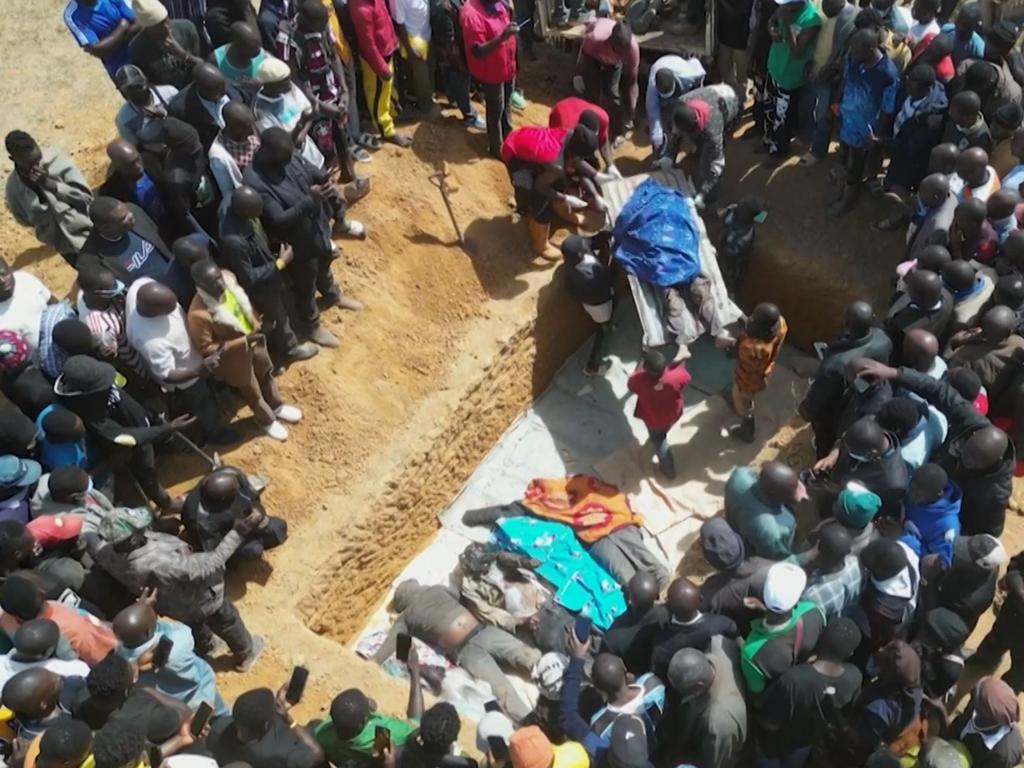
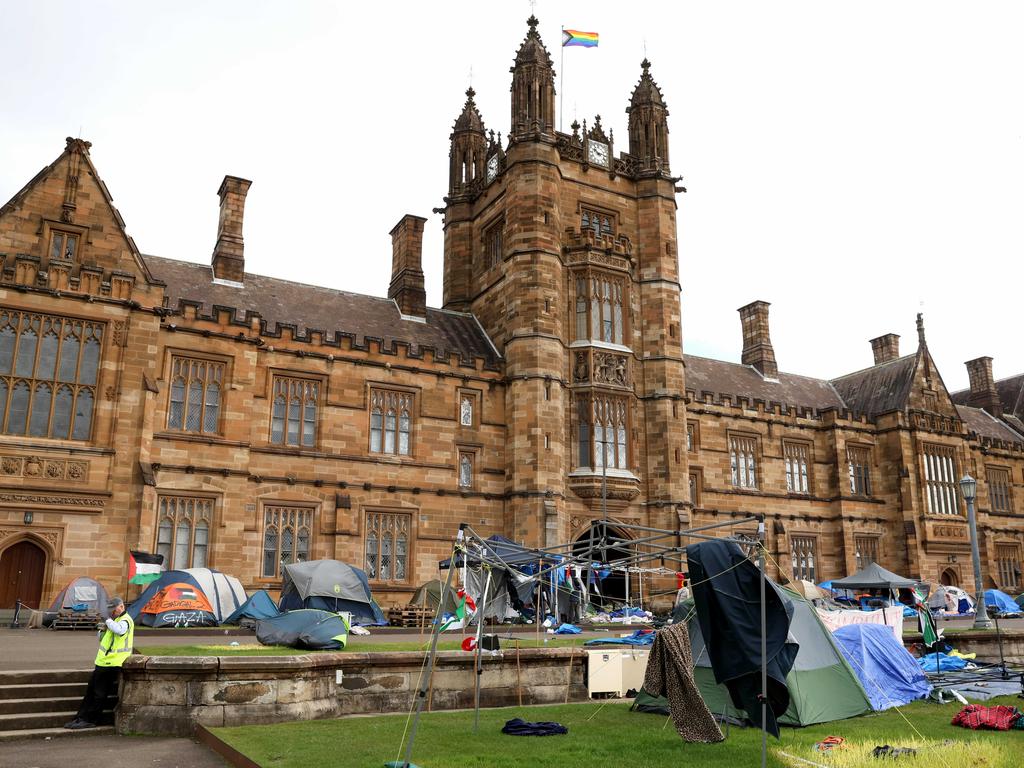
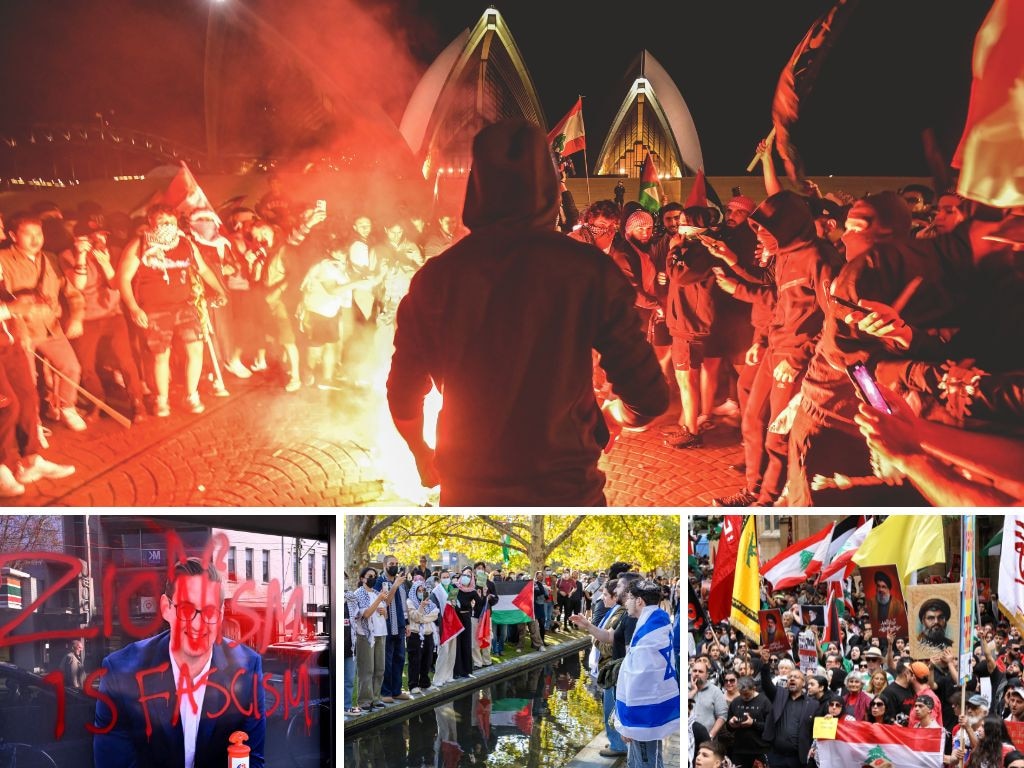
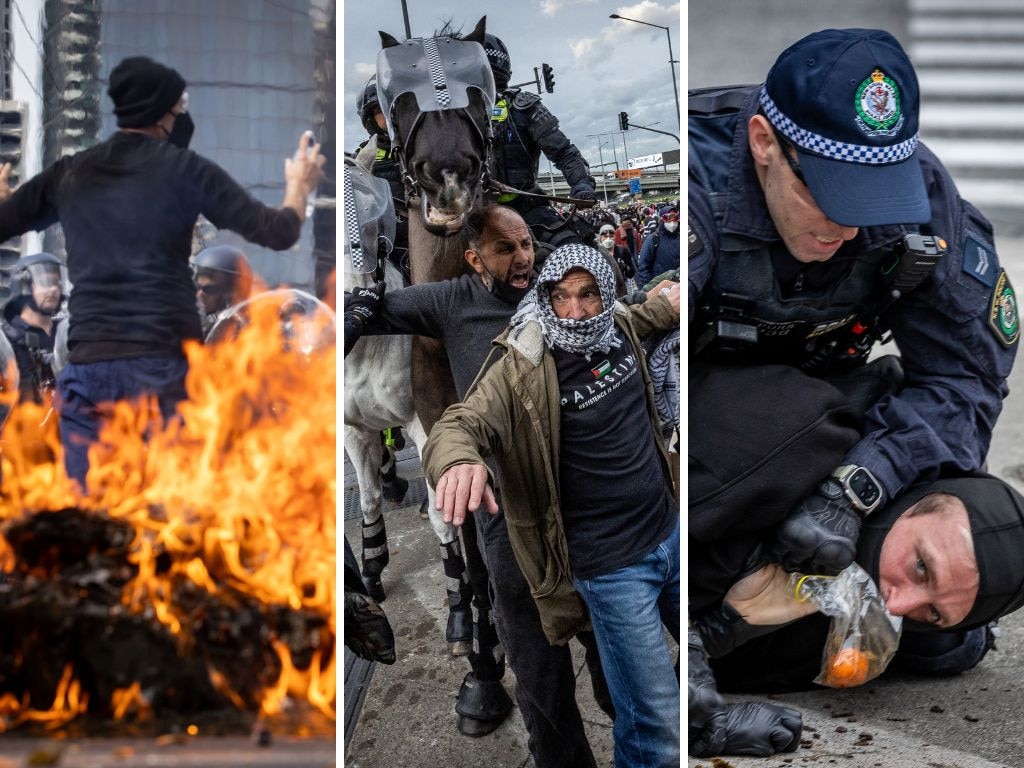


Here is something that may surprise you. Hassan Nasrallah, the Hezbollah leader killed in September by an Israeli airstrike, could see a positive side to the creation of the state of Israel that his organisation was committed to destroy.